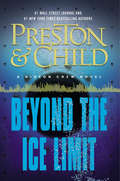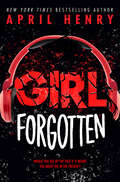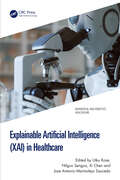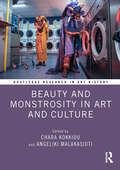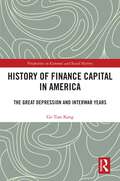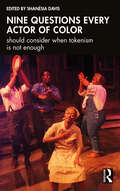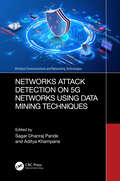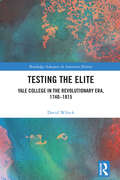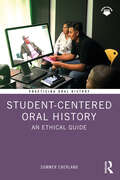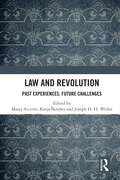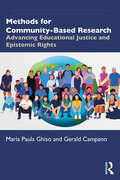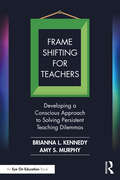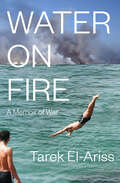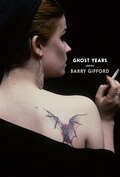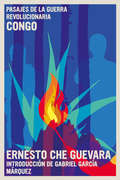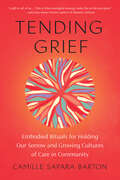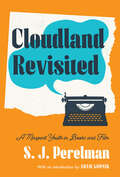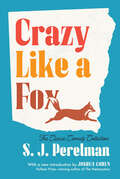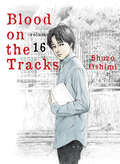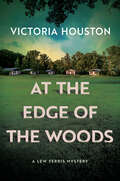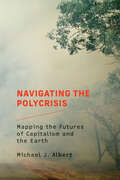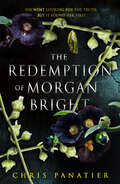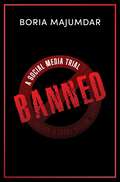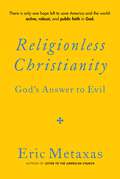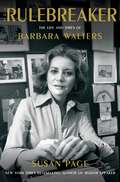- Table View
- List View
Beyond the Ice Limit: A Gideon Crew Novel (Gideon Crew Series)
by Douglas Preston Lincoln ChildBEYOND THE ICE LIMITThat thing is growing again. We must destroy it. The time to act is now...With these words begins Gideon Crew's latest, most dangerous, most high-stakes assignment yet. Failure will mean nothing short of the end of humankind on earth.Five years ago, the mysterious and inscrutable head of Effective Engineering Solutions, Eli Glinn, led a mission to recover a gigantic meteorite--the largest ever discovered--from a remote island off the coast of South America. The mission ended in disaster when their ship, the Rolvaag, foundered in a vicious storm in the Antarctic waters and broke apart, sinking-along with its unique cargo-to the ocean floor. One hundred and eight crew members perished, and Eli Glinn was left paralyzed.But this was not all. The tragedy revealed something truly terrifying: the meteorite they tried to retrieve was not, in fact, simply a rock. Instead, it was a complex organism from the deep reaches of space.Now, that organism has implanted itself in the sea bed two miles below the surface-and it is growing. If it is not destroyed, the planet will be doomed. There is only one hope: for Glinn and his team to annihilate it, a task which requires Gideon's expertise with nuclear weapons. But as Gideon and his colleagues soon discover, the "meteorite" has a mind of its own-and it has no intention of going quietly...
Girl Forgotten
by April HenryPiper Gray starts a true-crime podcast investigating a seventeen-year-old cold case in this thrilling YA murder mystery by New York Times bestselling author April Henry. Seventeen years ago, Layla Trello was murdered and her killer was never found. Enter true-crime fan Piper Gray who is determined to reopen Layla&’s case and get some answers. With the help of Jonas—who has a secret of his own—Piper starts a podcast investigating Layla&’s murder. But as she digs deeper into the mysteries of the past, Piper begins receiving anonymous threats telling her to back off the investigation, or else. The killer is still out there, and Piper must uncover their identity before they silence her forever.
Explainable Artificial Intelligence (Biomedical and Robotics Healthcare)
by Utku Kose Nilgun Sengoz Xi Chen Marmolejo Saucedo, Jose AntonioThis book highlights the use of explainable artificial intelligence (XAI) for healthcare problems, in order to improve trustworthiness, performance and sustainability levels in the context of applications.Explainable Artificial Intelligence (XAI) in Healthcare adopts the understanding that AI solutions should not only have high accuracy performance, but also be transparent, understandable and reliable from the end user's perspective. The book discusses the techniques, frameworks, and tools to effectively implement XAI methodologies in critical problems of healthcare field. The authors offer different types of solutions, evaluation methods and metrics for XAI and reveal how the concept of explainability finds a response in target problem coverage. The authors examine the use of XAI in disease diagnosis, medical imaging, health tourism, precision medicine and even drug discovery. They also point out the importance of user perspectives and value of the data used in target problems. Finally, the authors also ensure a well-defined future perspective for advancing XAI in terms of healthcare.This book will offer great benefits to students at the undergraduate and graduate levels and researchers. The book will also be useful for industry professionals and clinicians who perform critical decision-making tasks.
Beauty and Monstrosity in Art and Culture (Routledge Research in Art History)
by Chara Kokkiou Angeliki MalakasiotiThis edited volume takes a new look at an old question: what is the relationship between beauty and monstrosity? How has the notion of beauty transformed through the years and how does it coincide with monstrous ontologies? Contributors offer an interdisciplinary approach to how these two concepts are interlinked and emphasize the ways the beautiful and the monstrous pervade human experience.The two notions are explored through the axis of human transformation, focusing on body, identity, and gender, while questioning both how humans transform their body and space as well as how humans themselves are gradually transformed in different contexts. The pandemic, gender crisis, moral crisis, sociocultural instability, and environmental issues have redefined beauty and the relationship we have with it. Exploring these concepts through the lens of human transformation can yield valuable insights into what it means to be human in a world of constant change.The book will be of interest to scholars working in art history, archaeology, philosophy, architecture, and cultural studies.
History of Finance Capital in America: The Great Depression and Interwar Years (ISSN)
by Go Tian KangGo details through institutional analysis how major financial institutions (including banks and insurance companies), industries, and the U.S. government behaved and linked with each other during the Great Depression and interwar period.Drawing on data that has not been widely used since the late thirties – including congressional hearings, financial data, and government reports concerning economic concentration in the Depression era – Go presents a general picture of American finance capital on the eve of World War II. He details the emergence of important new financial‑industrial powers in the 1920s that challenged the Wall Street’s established order on the eve of Great Depression, the response of the Wall Street’s finance capital to the challenge, and its renewed dominance as well as the growing community of interests between finance and industry under the Depression. He also points out the role of Wall Street’s finance capital in financing the Reconstruction Finance Corporation in 1932, the New Deal, and the emerging war economy.With its coverage of primary sources, this book will interest researchers and advanced undergraduate students taking American history, political science, and institutional economics.
Nine questions every actor of color should consider when tokenism is not enough
by Shanésia DavisThis book confronts and analyzes the systemic racism that confronts actors of color in the USA through interviews with leading performers in the nation’s theatrical epicentre of Chicago.Each chapter deals with a different central question, from how these actors approach roles and the obstacles that they face, to the ways in which the industry can change to better enable actors of color. By bringing together these actors and sharing the ways in which they have functioned within the white theatre world, we can appreciate how theatre needs to embrace their identities so that all voices are heard, understood, and valued. The stories of these actors will reflect the systemic racism of the past and present with the hope of remaking the future.This is an important book for students, teachers, and professionals who engage in theatre work, helping them to understand the lived experiences of actors of color through those actors’ own words.
Networks Attack Detection on 5G Networks using Data Mining Techniques (Wireless Communications and Networking Technologies)
by Sagar Dhanraj Pande Aditya KhampariaArtificial intelligence (AI) and its applications have risen to prominence as one of the most active study areas in recent years. In recent years, a rising number of AI applications have been applied in a variety of areas. Agriculture, transportation, medicine, and health are all being transformed by AI technology. The Internet of Things (IoT) market is thriving, having a significant impact on a wide variety of industries and applications, including e-health care, smart cities, smart transportation, and industrial engineering. Recent breakthroughs in artificial intelligence and machine learning techniques have reshaped various aspects of artificial vision, considerably improving the state of the art for artificial vision systems across a broad range of high-level tasks. As a result, several innovations and studies are being conducted to improve the performance and productivity of IoT devices across multiple industries using machine learning and artificial intelligence. Security is a primary consideration when analyzing the next generation communication network due to the rapid advancement of technology. Additionally, data analytics, deep intelligence, deep learning, cloud computing, and intelligent solutions are being employed in medical, agricultural, industrial, and health care systems that are based on the Internet of Things. This book will look at cutting-edge Network Attacks and Security solutions that employ intelligent data processing and Machine Learning (ML) methods.This book: Covers emerging technologies of network attacks and management aspects. Presents artificial intelligence techniques for networks and resource optimization, and toward network automation, and security. Showcases recent industrial and technological aspects of next-generation networks Illustrates artificial intelligence techniques to mitigate cyber-attacks, authentication, and authorization challenges. Explains smart, and real-time monitoring services, multimedia, cloud computing, and information processing methodologies in 5G networks. It is primarily for senior undergraduates, graduate students and academic researchers in the fields of electrical engineering, electronics and communication engineering, computer engineering, and information technology.
Testing the Elite: Yale College in the Revolutionary Era, 1740–1815 (ISSN)
by David WilockThis volume explores the extent to which the Revolutionary period (1740–1815) impacted the faculty, students and institutional life of Yale College and how those changes shed insight into the nature of the American Revolution itself as a conservative or radical event.Throughout the eighteenth century, Yale continued a tradition of producing individuals who would perpetuate the economic and social status quo. At the same time, the institution was undergoing an evolution reflective of the broader movements in America that would persist into the era of the early republic. In order to examine Yale’s influence on those who attended, this study uses the student experience as a major source of evidence. Yale’s curriculum and culture prior to 1776 were beginning to embrace Enlightenment ideas, though not fully, and due in no small part to the petitions of students. From literary societies to student militias, there were ways for students to engage in an exchange of ideas about new courses and new modes of national government outside the classroom.The book is intended for both undergraduate and graduate students as well as general readers who are interested in the history of higher education, the American Revolutionary Era and the history of Connecticut.
Student-Centered Oral History: An Ethical Guide (Practicing Oral History)
by Summer CherlandStudent-Centered Oral History explores the overlaps of culturally relevant teaching, student-centered teaching, and oral history to demonstrate how this method empowers students, especially those from historically underrepresented communities. With tangible tools like lesson plans and reflection sheets, available to download as eResources from the book's website, each interactive chapter is applicable to classrooms and age groups across the globe. Educators from all levels of experience will benefit from step-by-step guides and lesson plans, all organized around guiding questions. These lessons coach students and educators from start to finish through a student-centered oral history. Background research, historical context, cultivating a culture of consent, analysis, promotion, and gratitude are among the many lessons taught beyond writing questions and interviewing. With a specific focus on the ethics influencing a teacher’s role as guide and grader of a student-centered oral history, this book also highlights successful approaches across the world of students and teachers discovering oral history. These examples reveal how student-centered oral history empowers academic achievement, radicalizes knowledge, develops relationships, and promotes community engagement. This book is a useful tool for any students and scholars interested in oral history in an educational setting.
Law and Revolution: Past Experiences, Future Challenges
by Matej Accetto Katja Škrubej Joseph H. H. WeilerThe last one hundred years have seen a number of events that could be perceived as disruptive challenges to the normal operation of the legal order. Some have been disruptive innovations of technologies or business practices, others social changes or constitutional transformations, further buttressed by the impact of globalisation and interdependence affecting the development of international, transnational and global law. Coincidentally, this period of one hundred years has been bookended by two pandemics, themselves disruptive realities testing the resilience as well as the adaptability of the legal regimes. A hundred years ago, the founding dean of a newly established law faculty beginning its mission amid the ashes of the First World War and the disintegration of the only remaining European empire gave an opening lecture exploring the role of law and judges in the face of revolutionary societal changes. Drawing upon that important text, this edited volume explores similar challenges for law brought about by various disruptive realities. The collection looks at the past as well as the future. Following the text of the opening lecture by Pitamic, the contributions are grouped under five headings, dealing with the law and revolution in 1918, the challenges posed for law by the seemingly more gradual political or technological transformations, the effects of globalisation and the changing world, with the final contributions reassessing the law, its methodologies and traditional paradigms including, in the epilogue, the challenges posed for law the recent disruptive reality of the Covid-19 pandemic. The book will be of interest to academics, researchers and policy-makers working in the areas of legal history, jurisprudence, constitutional law, law and politics, and law and technology.
Methods for Community-Based Research: Advancing Educational Justice and Epistemic Rights
by María Paula Ghiso Gerald CampanoMethods for Community-Based Research describes how Community-Based Research (CBR) is particularly suited to understand and take action on issues of educational justice.The book shifts assumptions about who is considered a researcher, drawing attention to issues of power and the ethics of collaborations, and foregrounding how those who have often been positioned as the objects of educational interventions can—and have the rights to—play an active role in creating educational arrangements more conducive to their own flourishing.The authors draw on a decade-long partnership across the boundaries of race, language, immigration status, and institutional affiliation to provide examples that illustrate the complexities and possibilities of this work. They distill principles, practices, and ongoing inquiries for researchers to consider across all aspects of the research process.The book supports researchers in creating the conditions for collaborative inquiry into issues of educational (in)justice that are salient to community partners. It will be of interest to advanced undergraduate, graduate students and scholars in education, and other disciplines that utilize a CBR method such as healthcare research and anthropology, as well as scholars interested in qualitative methods and issues of social justice in research.
Frame Shifting for Teachers: Developing a Conscious Approach to Solving Persistent Teaching Dilemmas
by Brianna L. Kennedy Amy S. MurphyLearn how you can successfully address persistent teaching dilemmas by reframing how you think about and respond to them. The authors show how adopting habits of mind, including curiosity and an asset-based teaching approach, is necessary for tackling teaching challenges more effectively and equitably. Chapters explain how you can then apply frame shifting by considering your dilemma in three domains - relationships, classroom management, and curriculum and instruction. Practical examples, exercises, and discussion questions throughout the book will help you apply the concepts to your own teaching situation. In addition, a bonus online study guide contains reproducible templates, additional examples, suggested answers, and more. Appropriate for teachers to read independently or through book studies and PLCs, the book will leave you with new strategies for changing your beliefs and reactions, and ultimately improving how you approach and reach your students.
Water on Fire: A Memoir of War
by Tarek El-ArissIn this evocative, insightful memoir, a leading voice in Middle Eastern Studies revisits his childhood in war-torn Lebanon and his family&’s fascinating history, coming to terms with trauma and desire.Water on Fire tells a story of immigration that starts in a Beirut devastated by the Lebanese Civil War (1975–90), continues with experiences of displacement in Europe and Africa, moves to northeastern American towns battered by lake-effect snow and economic woes, and ends in New York City on 9/11. A story of loss, but also of evolution, it models a kind of resilience inflected with humor, daring, and irreverence.Alternating between his perspective as a child and as an adult, Tarek El-Ariss explores how we live with trauma, poignantly illustrating the profound impact of war on our perception of the world, our fears and longings. His memoir is at once historical and universal, intellectual and introspective, the outcome of a long and painful process of excavation that reveals internal turmoil and the predicament of conflict and separation. A contemporary &“interpretation of dreams&” dealing with monsters, invisible creatures, skin outbreaks, and the sea, it is a book about objects and elements, like water and fire, and about how encountering these elements triggers associations, connecting present and past, time and space.
Ghost Years
by Barry GiffordA tribute to the author's mother Kitty, the gritty Chicago landscape of his youth, and the "ghost years, that time in your life you don't know won't never come again." Barry Gifford has been writing the story of America in acclaimed novel after acclaimed novel for the last half-century. Almost all of the stories in Ghost Years takes place in the 1950s, examining the lives of women in that period—the suppression, the lack of opportunities, the dependency on men. Following his story collection, Roy's World, which inspired the documentary directed by Rob Christopher, narrated by Lili Taylor, Matt Dillon and Willem Dafoe, these stories show a childhood in mid-century America filled with innocence, grief, joy and wonder in equal measure.
Pasajes de la Guerra Revolucionaria: Congo (The Che Guevara Library)
by Ernesto Che GuevaraEn abril de 1965, el Che Guevara se marcha de La Habana al Congo para dirigir a 200 veteranos cubanos que asisten al movimiento de liberación africana contra los colonialistas belgas, cuatro años después del asesinato del presidente socialista democráticamente electo, Patrice Lumumba.Porque el diario trata el admitido "fracaso" del Che, examina cada detalle doloroso de lo sucedido para poder extraer enseñanzas constructivas para futuros movimientos guerrilleros.Único entre sus libros, Pasajes de la Guerra Revolucionaria: Congo es un retrato del Che brutalmente honesto que ilustra su capacidad como cuentista; en sus relatos de los fascinantes episodios de conflicto armado de la guerrilla no hay hesitación, endulzamiento o jerga. Algunos lo consideran el mejor libro del Che, también es uno de los pocos que editó para la publicación luego de escribirlo.
Tending Grief: Embodied Rituals for Holding Our Sorrow and Growing Cultures of Care in Community
by Camille Sapara Barton&“Camille Sapara Barton is a gift to all of us. ... This is what emergent strategy looks like at the precipice.&” —adrienne maree brown, author of Pleasure ActivismAn embodied guide to being with grief individually and in community—practical exercises, decolonized rituals, and Earth-based medicines for healing and processing lossWe live in a culture that suppresses our ability to truly feel our grief—deeply, safely, and on our own terms. But each person&’s experience is as unique as the grief itself. Here, Camille Sapara Barton&’s take on grief speaks directly to the ways that BIPOC and queer readers disproportionately experience unique constellations of loss. Deeply practical and easy to use in times of confusion, trauma, and pain, Tending Grief includes rituals, reflection prompts, and exercises that help us process and metabolize our grief—without bypassing or pushing aside what comes to the fore. Sapara Barton includes exercises that can be done both alone and in community, including:Altar practices to honor and connect with ancestors known and unknownLocating, holding, and dancing your griefSharing circles for processing communal lossWater, fire, and nature-based ritualsHonoring the survival utility of numbness—and knowing when it&’s time to release itPeer support and integrationHerbal medicines and plant-based healingSapara Barton honors each and every experience: The loss of displacement from homelands, from severed lineages and ancestral ways of knowing. The grief of colonization and theft. The deep heaviness that burrows into our bodies when society tells us our bodies are wrong. Practical tools and rituals help readers feel into their grief, honor what comes up, and move forward in healing.Written specifically to center and hold the grief of BIPOC readers, Tending Grief is an invitation to reconnect to what we&’ve lost, to find community in our grief, and to tend to our own suffering for our individual and collective wellbeing.
Cloudland Revisited: A Misspent Youth in Books and Film
by S. J. PerelmanGathered for the first time: one of America's great humorists revisits the books and movies from his youth—often with some embarrassment—in this complete, 22-piece collectionFrom October 1948 to October 1953, The New Yorker published humorist S. J. Perelman&’s &“Cloudland Revisited&” series: 22 reviews of once-popular books and silent films whose expiration dates had passed. All but forgotten even at the time, they were nonetheless part of Perelman&’s youth and made an indelible mark on him.In the comic genius&’s biting satire they live once again:Gertrude Atherton&’s sensationalist fantasy Black OxenSax Rohmer&’s supervillain blockbuster The Mystery of Dr. Fu-Manchuthe &“underwater&” silent film adaptation of Twenty Thousand Leagues under the SeaEdgar Rice Burrough&’s 1914 novel Tarzan of the Apesand George Barr McCutcheon&’s 1901 historical fantasy novel Graustark—the Game of Thrones of its era—which launched numerous sequels and film adaptations The complete series is collected here for the first time. With self-deprecating humor and frequent embarrassment, Perelman reflects on how rereading and rewatching brings us in contact with how we, like an old book or film, have both changed and remained the same. This paperback includes a tribute to Perelman&’s art by another beloved New Yorker writer, Adam Gopnik.
Crazy Like a Fox: The Classic Comedy Collection
by S. J. PerelmanA beloved classic returns: S. J. Perelman's own selection of the very best of his hilarious stories and sketchesPulitzer Prize–winning author Joshua Cohen (The Netanyahus) reintroduces America's zaniest humorist to a new generation of readersWhen asked about himself the writer Sidney Joseph Perelman once quipped, "before they made him, they broke the mold." Nowhere is S. J. Perelman's one-of-a-kind, madcap sensibility—his gift for wordplay, witticism, spoofery, and sheer nonsense—on better display than in his classic collection Crazy Like a Fox, here restored to print for the first time in decades.In a playful, loving tribute to the funny man, novelist Joshua Cohen—also an erudite wordsmith and punster—introduces Perelman&’s sui generis comic pieces to a new generation of readers, certain to fall in love with the writer whom The New York Times once noted for his ability &“to transform the common cliché or figure of speech into an exploding cigar.&” Included here are such beloved classics as:the Joycean virtuoso performance &“Scenario&”&“A Farewell to Omsk,&” Perelman's hilarious homage to Dostoevskyand &“Farewell, My Lovely Appetizer," his side-splitting send-up of the hardboiled detective fiction of Raymond ChandlerHere is Perelman's own selection of the very best of his inimitable humor, restored to print for the first time in decades.
Blood on the Tracks 16 (Blood on the Tracks #16)
by Shuzo OshimiFrom the creator who brought you notable works such as The Flowers of Evil, Happiness, and Inside Mari, comes his latest suspense drama centering on the theme of a toxic parent.Dive into this latest thriller by master storyteller, Shuzo Oshimi."..if you enjoyed Oshimi's previous work with "Flowers of Evil", and you enjoy dark storylines with twisted characters, you'll no doubt enjoy "Blood on the Tracks"! Recommended!" - Neo Tokyo 2099The tale of Seiko&’s past draws to a close, and Seiichi is left with one central, burning question: &“Why did you &‘kill&’ me?&”Once that question has been answered, can some kind of relationship between mother and child be resurrected?The long night is over—now what will the dawn bring?
At the Edge of the Woods (A Lew Ferris Mystery #3)
by Victoria HoustonSomeone is murdering pickleball players in Loon Lake and Sheriff Ferris is on the hunt for their killer in Victoria Houston&’s third nail-biting Lew Ferris mystery, perfect for fans of Marc Cameron and Nevada Barr.When a local pickleball player is shot in the head while practicing at an abandoned tennis court with his partner-slash-lover, Sheriff Lew Ferris suspects that the bullet was a stray shot from hunters in the area. It&’s not until a second player–the first victim&’s mistress and pickleball partner–is killed that Sheriff Ferris realizes this is no hunting accident. Someone is hunting people, and it&’s up to her to find out who.With the first victim&’s crazed widow breathing down Lew&’s neck, there&’s no room to breathe, let alone to find time to appreciate the beautiful Loon Lake fall and go fishing. Adding to Sheriff Ferris&’ difficulties are three pickleball players convinced someone has targeted them, someone who will do anything, even murder, to frighten them away from the courts where they play – but why?Who is really at risk? The pickleball players, or Lew and the people close to her?
Navigating the Polycrisis: Mapping the Futures of Capitalism and the Earth
by Michael J. AlbertAn innovative work of realism and utopianism that analyzes the possible futures of the world-system and helps us imagine how we might transition beyond capitalism.The world-system of which we are all a part faces multiple calamities: climate change and mass extinction, the economic and existential threat of AI, the chilling rise of far-right populism, and the invasion of Ukraine, to name only a few. In Navigating the Polycrisis, Michael Albert seeks to illuminate how the &“planetary polycrisis&” will disrupt the global community in the coming decades and how we can best meet these challenges. Albert argues that we must devote more attention to the study of possible futures and adopt transdisciplinary approaches to do so. To provide a new form of critical futures analysis, he offers a theoretical framework—planetary systems thinking—that is informed by complexity theory, world-systems theory, and ecological Marxism. Navigating the Polycrisis builds on existing work on climate futures and the futures of capitalism and makes three main contributions. First, the book brings together modeling projections with critical social theory in a more systematic way than has been done so far. Second, the book shows that in order to grasp the complexity of the planetary polycrisis, we must analyze the convergence of crises encompassing the climate emergency, the structural crisis of global capitalism, net energy decline, food system disruption, pandemic risk, far-right populism, and emerging technological risks (e.g. in the domains of artificial intelligence, biotechnology, and nuclear weapons). And third, the book contributes to existing work on postcapitalist futures by analyzing the processes and mechanisms through which egalitarian transitions beyond capitalism might occur.A much-needed work of global futures studies, Navigating the Polycrisis brings together the rigor of the natural and social sciences and speculative imagination informed by science fiction to forge pathways to our possible global future.
The Redemption of Morgan Bright
by Chris PanatierA woman checks herself into an insane asylum to solve the mystery of her sister&’s murder, only to lose her memory and maybe her mind.From the subversive voice behind The Phlebotomist comes a story that combines the uncanny atmosphere of Don&’t Worry Darling with the narrative twists of The Last House on Needless StreetWhat would guilt make you do? Hadleigh Keene died on the road leading away from Hollyhock Asylum. The reasons are unknown. Her sister Morgan blames herself. A year later with the case still unsolved, Morgan creates a false identity, that of a troubled housewife named Charlotte Turner, and goes inside. Morgan quickly discovers that Hollyhock is… not right. She is shaken by the hospital&’s peculiar routines and is soon beset by strange episodes. All the while, the persona of Charlotte takes on a life of its own, becoming stronger with each passing day. As her identity begins unraveling, Morgan finds herself tracing Hadleigh&’s footsteps and peering into the places they lead. The terrifying reality of The Redemption of Morgan Bright unfolds over the course of chapters told from the points of view of both Charlotte and Morgan, police interviews, and text messages. File Under: Horror [ Twirl With Them | Sisterly Bond | It&’s a Doozy | Be Careful What You Wish For ]
Banned: A Social Media Trial
by Boria MajumdarA social media trial can break you. There were 100,000 tweets of abuse for days on end, all premised on a set of untruths pushed by someone hugely powerful because he had played for the national team. Against the entitled, I never stood a chance. The online trial forced me and the family to draw on every last bit of inner strength, and yet left permanent scars. Having served the ban, I wanted closure in the form of this book. But no one knows better that there will never be a full stop. I will not get back the two years of opportunities that I lost, or the days and evenings when I was almost a stranger to my daughter. For two years, my wife and I never had a quiet dinner where we could just relax. There was not one evening when we didn&’t discuss the issue and the book. Which outsider can quantify the impact it had on the mental health of my family? On my wife, my mother, my sister and my daughter? I became cynical about a number of things, and it will be tough to change that. Writing this book and putting the truth out there has drained and exhausted me. The truth is that the falsehoods piled up against me, ratified by all-knowing social media trolls, changed my life and that of my family. There is no going back to what we were. This was our Long Covid.
Religionless Christianity: God's Answer to Evil
by Eric MetaxasChristianity is not about rituals but changed hearts. In the prophetic tradition of Dietrich Bonhoeffer, Eric Metaxas calls slumbering Christians to battle.Picking up where he left off in his electrifying Letter to the American Church, Eric Metaxas renews and deepens his call to believers not to &“practice&” their faith but to live it—heroically and with joy. Invoking famous but misunderstood words of Dietrich Bonhoeffer, he shows that God&’s answer to evil is &“religionless Christianity&”—the rejection of religiosity and the embrace of a living and active faith, one that consumes the whole person and affects every aspect of his life. The awakening of this faith will bring revival, a &“new birth of freedom&” and a renaissance of Christian culture.
The Rulebreaker: The Life and Times of Barbara Walters
by Susan PageThe definitive biography of the most successful female broadcaster of all time—Barbara Walters—a woman whose personal demons fueled an ambition that broke all the rules and finally gave women a permanent place on the air, written by bestselling author Susan Page.Barbara Walters was a force from the time TV was exploding on the American scene in the 1960s to its waning dominance in a new world of competition from streaming services and social media half a century later. She was not just a groundbreaker for women (Oprah announced when she was seventeen that she wanted to be Barbara Walters), but also expanded the big TV interview and then dominated the genre. By the end of her career, she had interviewed more of the famous and infamous, from presidents to movie stars to criminals to despots, than any other journalist in history. Then at sixty-seven, past the age many female broadcasters found themselves involuntarily retired, she pioneered a new form of talk TV called The View. She is on the short list of those who have left the biggest imprints on television news and on our culture, male or female. So, who was the woman behind the legacy? In The Rulebreaker, Susan Page conducts 150 interviews and extensive archival research to discover that Walters was driven to keep herself and her family afloat after her mercurial and famous impresario father attempted suicide. But she never lost the fear of an impending catastrophe, which is what led her to ask for things no woman had ever asked for before, to ignore the rules of misogynistic culture, to outcompete her most ferocious competitors, and to protect her complicated marriages and love life from scrutiny. Page breaks news on every front—from the daring things Walters did to become the woman who reinvented the TV interview to the secrets she kept until her death. This is the eye-opening account of the woman who knew she had to break all the rules so she could break all the rules about what viewers deserved to know.
